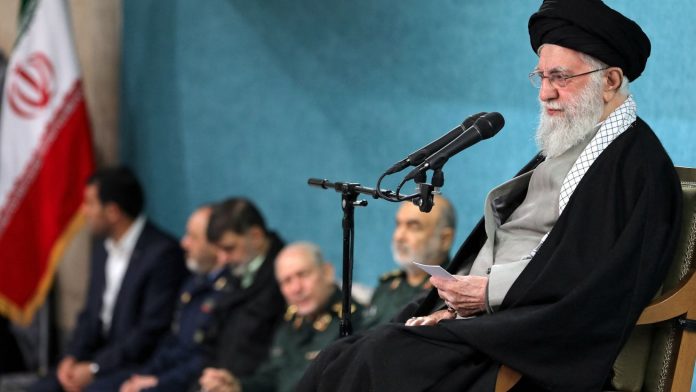On 8th March, Supreme Leader Ayatollah Ali Khamenei stated that Iran would not be pressured into negotiations. This came after US President Donald Trump announced he had sent a letter to Iran’s leadership, urging them to engage in discussions over a nuclear deal.
In an interview with Fox Business, Trump suggested there were two ways to handle Iran: military intervention or a negotiated deal to prevent Tehran from developing nuclear weapons.
Iran’s stance on US demands
At a meeting with senior officials, Khamenei said the United States was seeking to “impose their own expectations,” according to Iranian state media reports.
“The insistence by certain bullying governments on negotiations is not aimed at resolving issues,” Khamenei stated. “For them, talks are a means to introduce new demands, not just about Iran’s nuclear programme. Iran will not accept such expectations,” he added. He did not directly mention Trump.
After Khamenei’s remarks, White House National Security Council spokesperson Brian Hughes repeated Trump’s statement about two options: negotiations or military action.
“We hope the Iranian regime will prioritise the welfare of its people over supporting terrorism,” Hughes said in a statement.
Tensions over Iran’s nuclear programme and defence capabilities
Trump has expressed a willingness to reach a deal with Iran. However, he has also reinstated the “maximum pressure” strategy from his first term. This approach isolates Iran economically and aims to reduce its oil exports to zero.
In 2018, Trump withdrew the United States from the 2015 nuclear deal with Iran. The deal had placed strict restrictions on Tehran’s nuclear activities in exchange for sanctions relief. After the US withdrawal and the re-imposition of sanctions, Iran exceeded the deal’s limitations on its nuclear programme.
Rafael Grossi, head of the UN’s nuclear watchdog, has warned that time is running out for diplomatic efforts. Iran continues to enrich uranium, bringing it closer to weapons-grade levels.
Iran maintains that its nuclear programme is for peaceful purposes only.
Khamenei, who has the final say on Iran’s policies, said there was “no other way to resist coercion and bullying.”
“They are presenting new demands that Iran will not accept, such as on our defence capabilities, missile range, and international influence,” he said.
Although Tehran insists that its ballistic missile programme is defensive, the West views it as destabilising in an already volatile Middle East.
In recent months, Iran has revealed new military developments. These include its first drone carrier and an underground naval base. Tensions with the US and Israel continue to rise as Iran expands its military capabilities.
